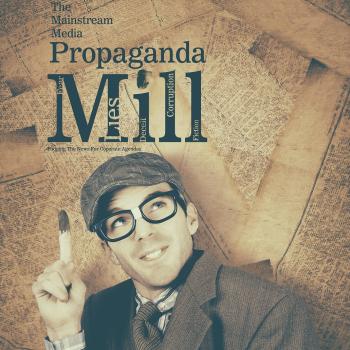
Last week, the US House of Representatives passed the “One Big Beautiful Bill Act.” The question arises, What would Jesus think of this? Certainly, this is a complex question with no straight answer. The problem is, as I see it, that many Christians have a poor understanding of the biblical concept of the kingdom of God and economics. And it is within this framework that I intend to address the question.
NB: Although many readers will likely view this post and the one that follows as primarily focused on the American political landscape, I want to emphasize that my central concern is the Church. This will be clear at the end of the next post, which will go live on Thurs, June 5.
The Gospel is “good news” to the poor (Luke 4:18; 6:20). But how?
To answer this, we must discern, “What is the Gospel?”, “Who are the poor that are blessed?”, and “In what way are the poor blessed?”
It is commonplace among evangelicals, and I’m sure this extends well beyond the realm of evangelicals, to believe that the Gospel entails the “good news” that by faith in Jesus Christ, we might be saved and go to heaven when we die.
But if this is the totality of the “good news,” then how is it explicitly for the poor? Isn’t it for everyone who believes?
NB: We cannot simply cast this aside by saying that all Jesus meant is that it was for the “poor in spirit.” Sure, this is what Jesus says in Matt 5:3. But Luke clearly has the poor in view. This is evident by the fact that Luke contrasts the “poor” and the “rich” (Luke 6:20, 24).
NBB: This may be one of the more important posts I have written. I knew when I started writing this post that it would be challenging to condense everything into a brief post. So, I have chosen to create two posts. Part 2 will be posted on Thurs, June 5. Subscribe to the Determinetruth blog and receive email notifications each time a new blog post is published.
The Widow’s Mite (Mark 12:41-44; Luke 21:1-4)
I’m sure you’ve heard sermons on how the widow who “put in all that she had to live on” (Luke 21:4; Mark 12:44) represents the model for sacrificial giving.
But is that what Jesus meant? Was He praising the widow for her faithful and sacrificial giving?
NB: The irony is that when this sort of sermon is given, the pastor does not follow that up with, “Therefore, we too should give all that we have to live on.” Instead, the sermon usually entails something along the lines of “even if you can’t afford to give a tenth, you should.” The tragedy of this message is that “sacrificial” giving becomes something that only the poor are expected to do. For if the goal is 10%, then those with means are not giving sacrificially. After all, $40,000 from someone who makes $400,000 is probably nothing more than a tax write-off. Or, maybe they have to “sacrificially” limit their vacation expenditures or, even worse, downsize from a 5,000 sq. ft. home to a meager 4,000 sq. ft. However, giving $3,000 for someone making $30,000 may mean taking food off their table.
Context is king
As with all interpretation, context is king.
In both Mark (Mark 12:38-40) and Luke (Luke 20:45-47), the account of the widow’s mite is preceded by Jesus’ stern warning to “beware” of the religious leaders who “devour widows’ houses” (Mark 12:40; Luke 20:47).
In addition, both Mark and Luke follow the story of the widow’s mite with Jesus’ declaration of judgment upon Jerusalem and the temple (Mark 13:1-23; Luke 21:5-24) so that “Not one stone will be left upon another which will not be torn down (Mark 13:2; Luke 21:6).
This all-too-brief examination suggests that the impending judgment upon Jerusalem and the destruction of the temple will be, in part, because of what the religious leaders have done to widows.
Consequently, the account of the widow giving her two small copper coins paints a negative portrait. It serves as a prime example of how they “devour widows’ houses.”
With this in mind, it is hard to suppose that Mark or Luke would be interjecting a story in which Jesus praises a poor widow for her faithful giving.
This might make sense if the wealthy were not giving, and she was. If so, then Jesus might have been saying the judgment upon Jerusalem would be a result of their failure to give. Jesus would, in effect, be saying, “You haven’t been faithful in giving like this poor widow. Therefore, I will bring judgment upon Jerusalem and the temple.”
But this is not what the text says. Both Mark and Luke note that the rich were also giving; in fact, Mark says they were offering “large sums” (Mark 12:41; Luke 21:1).
Jesus was not saying, “Your giving should be like this widow’s.”
It makes far better sense, then, to conclude that the insertion of the account of the widow’s mite serves as an example of how the religious leaders were “devouring” widows’ houses.
They were making this poor widow give.
Jesus, then, was not applauding her faithful contribution, though He was certainly not condemning her. Instead, He was condemning the religious leaders who made this “poor” widow give.
Note again that her offering of “two small copper coins” (Luke 22:2), which would not have been enough to buy a loaf of bread, constituted “all that she had to live” (Luke 21:4; Mark 12:44).
The notion that Jesus was applauding her as if to say, “Good job. I know you have no money left to eat—though you didn’t before you put the two coins in either—but rest assured, when you die from hunger, at least you know where you will be going.”
A better reading of the text suggests that Jesus’ reaction was crying out to the religious leaders, “What! This poor widow doesn’t have enough to buy a loaf of bread, and you are demanding her give? Now, how is she supposed to eat? Why didn’t you ensure that this “poor widow” had more than enough to live on? Because you have done this, I tell you this is what is going to happen. . . .”
The OT Law did not require the poor to give (Deut 14:22-15:11)
Another problem with the assumption that this poor widow was being praised by Jesus for her faithful giving is that it overlooks the fact that the Old Testament Law didn’t require those who lacked sufficient means for their daily needs to give.
Deuteronomy 14:22-29 specifies that tithes were to be given from the “produce of the land” (Deut 14:28; note the KJV reads “increase of the land,” which helps us understand that “the produce of the land” refers to that which is beyond what was needed to survive).
NB: There may have been other means of acquiring a “produce” (“increase”), but land ownership was far and away the primary means.
This meant that the landless poor—those with no means of producing an increase—were not required to tithe because they had no increase—i.e., tithing wasn’t imposed on what people didn’t have.
It is critical to note that Deut 15:1-11 immediately follows the provision on tithing in Deut 14:22-29 by detailing what was to be done for the poor.
The result, “There will be no poor among you” (Deut 15:4). Why is this? Because “you shall freely open your hand to him, and shall generously lend him sufficient for his need in whatever he lacks” (Deut 15:8).
We should also note that Deut 15:4 is cited in Acts 4:34 (citing the Greek [LXX] of Deut 15:4) in order to demonstrate that the early Christian community was carrying out or fulfilling God’s prescription for caring for one another’s needs. Hence, “There was not a needy person among them, for all who were owners of land or houses would sell them and bring the proceeds of the sales and lay them at the apostles’ feet” (Acts 4:34–35).
This means that when we preach sermons suggesting that we should give sacrificially like this widow, we are affirming the same message that the Scribes preached and Jesus condemned!
How does this speak to the new proposed tax bill?
To be continued . . . See the Determinetruth post on Thur, June 5, 2025.
Make sure to subscribe to the Determinetruth newsletter on Patheos to receive email notification every time a new post is uploaded (note: this is not a traditional newsletter; it simply means you will be emailed every time a new blog is posted).
At Determinetruth, we work independently of any church or institution. This allows us to speak more candidly (shall we say “prophetically”). We refuse to put these posts behind a paywall, which hinders the poor from accessing the information. But we can only continue these posts with the support of those of you who can afford to give. So, if you can afford to give $5, $10, $25, or $1 million/month, please do so. You can provide a tax-deductible contribution by following this link. Choose “Rob” in the dropdown menu.
Please share this post and let others know about determinetruth.
If you wish to view this blog on your smartphone through the Determinetruth app, download the “tithe.ly church” app and insert “determinetruth” as the name of the church you wish to follow. Once it is loaded, click on the “blog” icon, and it will automatically load.














